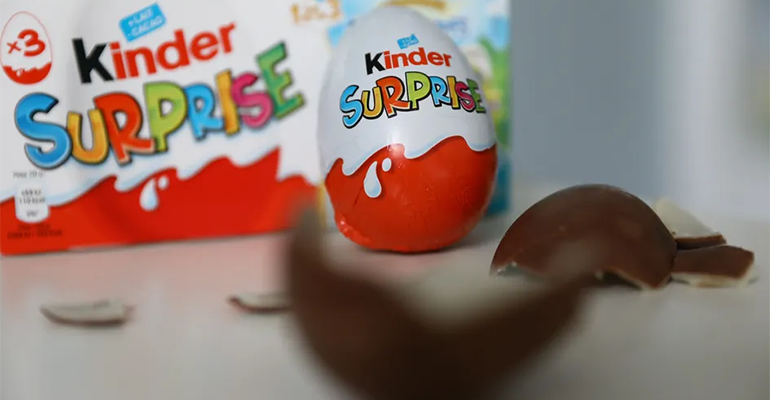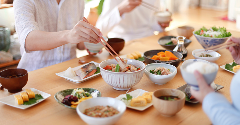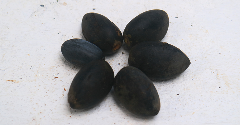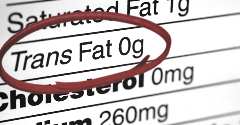Foodwatch says industry self-monitoring ‘not sufficiently effective’ at preventing potentially harmful contamination
10 Jun 2022The system of self-monitoring entrusted to food manufacturers is “not sufficiently effective” to ensure food safety, says non-profit watchdog Foodwatch, following cases of Nestlé and Ferrero products contaminated with E.coli and Salmonella.
This is according to Foodwatch France’s director of public information, Ingrid Kragl, amid international investigations into reported serious cases of contaminated Nestlé and Ferrero products.

Addressing the dozens of E.coli cases in France which authorities linked to Nestlé’s Buitoni Fraich'up frozen pizzas – including two children who died – a Nestlé spokesperson told Ingredients Network that it will run “extensive follow-up work” for “months and years to come.”
Nevertheless, Kragl said that contamination linked with the food giants is a sign of bigger issues for oversight of the food sector, with product recalls taking place “when it is already too late.”
She added that too often, there is “reaction instead of prevention” in the food industry.
“The recall of products occurs when it is already too late, when they have already been purchased and often even consumed,” said Kragl.
“This type of case rarely goes to court. Too often, manufacturers get away with it,” she added. “This is the crux of the problem: sanctions should be dissuasive and exemplary, so that all operators take their responsibilities.”
Salmonella & E.coli outbreaks: Two Foodwatch France complaints
The comments come on the heels of two complaints filed against the industry giants by watchdog Foodwatch together with consumer claimants in May, at the public health centre of the Paris court.
The complaints list a host of “serious violations” relating to recent E.coli and Salmonella outbreaks linked to the companies’ products in France, Belgium and other markets.
Beside Nestlé’s Buitoni frozen pizzas – which were recalled after French authorities confirmed a link between dozens of cases of E.coli infection, and the related Nestlé production facility in Caudry, France that was closed in April 2022 – the complaints also cover Ferrero’s Kinder chocolates.
The Kinder chocolates were reportedly contaminated with Salmonella, a matter also under investigation within the Belgian public prosecutor’s office. Belgian authorities also closed the Kinder production plant in April 2022.
One consumer who fell ill – a subject of the complaints – was a 6-year-old named Louna who was hospitalized with a Salmonella infection which Foodwatch claims she contracted after eating Kinder chocolate.
Nestlé: ‘Not representative of strict sanitary & quality standards’
Kragl also highlighted a report by Mr Mondialisation in May 2021, purportedly based on images from a whistleblower Nestlé employee, which highlighted “unsanitary conditions” at the Buitoni Caudry site.
The Nestlé spokesperson said the photographs published by Mr Mondialisation “are not representative of the strict sanitary and quality standards at any Nestlé factory, nor are they related to the current situation”.
Still, Foodwatch claims that the problems arose as a result of failures in the Nestlé and Ferrero’s processes, claiming that its investigations revealed the cases were preventable, but that there was a “lack of responsiveness, failures, lack of empathy, cynicism […] and poor management” in industry.
It also claims that Ferrero, for example, was informed by UK authorities of the possible product contaminations as of 23 March 2022 – reportedly even dating back to December 2021, according to Kragl – but that French recalls were not issued until 5 April.
Ferrero’s recalls were done in a “piecemeal” fashion, Kragl also claimed, “first some batches, then others.”
A spokesperson for Ferrero said its number one priority was the safety of its consumers and it apologised again to all those affected by the outbreak of Salmonella.
"In December last year at our Arlon factory we identified a suspected source of contamination in a filter of our butter process. Immediately, all products were stopped from release. At every stage, we took all the necessary actions to contain the issue, following our safety procedures and believed the issue was fixed.
"However, in March, through our collaboration with food safety authorities, a link between the Kinder findings and cases of salmonella was discovered. We acted straight away, working with all authorities. All Kinder products made in Arlon were recalled and we closed the factory.
Foodwatch demands financially dissuasive sanctions
Foodwatch demanded “exemplary sanctions” in its complaints.
Asked what the sanctions could entail, Kragl told Ingredients Network that the penalty would be “above all symbolic,” but that “its pronouncement will already have the advantage of demonstrating the impunity of this type of behaviour.”
“The penalty must also be financially dissuasive,” Kragl urged, speculating that it could amount to up to 10% of turnover, “provided it is proportional to the benefits derived from the breach.”
The serious violations Foodwatch is claiming (Google translated from French) are:
- Marketing of products harmful to health (Article 14 of Regulation (EC) 178/2002) and refraining from implementing procedures for the withdrawal or recall of such a product;
- Violation of the provisions of the decrees issued pursuant to Article L. 412-1 of the Consumer Code and in particular the rules of hygiene;
- Aggravated disappointment;
- Endangering the lives of others;
- Involuntary attacks on the integrity of the person;
- Display or sale of adulterated or corrupted and harmful food products;
- Export to a country outside the European Union of a foodstuff detrimental to health.
Political will and better public resources crucial
Still, despite stressing the need for better oversight of industry and harsher penalties for wrongdoing, Kragl said resources dedicated to these controls, specifically in France, are “dwindling,” allowing “unscrupulous operators to slip through the net.”
As of 2022, France’s Directorate General for competition, consumer affairs and fraud prevention (DGCCRF) had 442 fewer agents compared to 10 years earlier, she said.
“As for the Directorate-General for Food [DGAL], which is responsible for veterinary inspection (slaughterhouses, etc.) and also phytosanitary inspection (pesticides), the number of food safety inspections fell by 33% between 2012 and 2019,” she added, citing DGAL’s own annual reports.
“Ultimately, it is the responsibility of public authorities to protect the health of consumers.”
Kragl said there needs to be the “political will” to address and prioritise these issues.
Nestlé offers ‘sympathy,’ asks distributors to extend the recall
Speaking “on behalf of our colleagues in France,” Nestlé’s spokesperson said: “First, we want to offer our deepest sympathy to all those affected and extend our support to their families. This is all the more upsetting since there are children impacted.”
The spokesperson said that as soon as the company was informed by French authorities on 17 March of the presence of Shiga toxin-producing E. coli (STEC) in the frozen dough of a Buitoni Fraîch’Up pizza, “we immediately carried out a voluntary recall of the product out of an abundance of caution, interrupted all deliveries, and suspended production.”
They continued to say, however, that: “Buitoni does not sell Fraich'up pizzas directly out of the French market.
“Fraich'Up pizzas are distributed and marketed to distributors/resellers in France, who can export and resell our pizzas on their own initiative to shops abroad. We asked these distributors to extend the recall to all countries where they could have exported or resold Fraich'Up pizzas on their own initiative.
“In addition, we took the initiative to ask our sales teams present in these markets to ensure that these recalls were carried out as we did for the French market.”
The spokesperson added that safety and quality remain the “top priority” for Nestlé, and that “We take this responsibility seriously and will do extensive follow-up work for months and years to come.”
“[…] We are cooperating fully with the French authorities as part of their important task to find the origin of the bacterial outbreak. France has a world-class food safety and public health system, and we stand ready to make all our scientific resources available to support their work.”
Yet, Kragl argued that to collaborate with authorities is “not an extraordinary favour that they grant to investigators; it is an obligation (law) in this type of case.”
Executives from both Nestlé and Ferrero also issued apologies in videos, but Kragl countered that “crisis communication is not enough.”
Related news

Chinese food brand wants to give customers ‘the full experience’
16 Dec 2022
Food brand Xiao Chi Jie is revamping Chinese cuisine for the modern American consumer. The Washington-based company sells regional Chinese specialties like soup dumplings, noodle kits, and barbeque skewers direct-to-consumer in the US.
Read more
Regulations spur healthy snacking in Europe
15 Dec 2022
Healthy snack demand is on an upward trajectory in Europe, fuelled by products attaching health halos to their products, according to latest figures by Euromonitor – but regulations may be the real driver.
Read more
Could the EU-Mercosur trade deal be revived?
14 Dec 2022
The re-election of Luiz Inácio da Silva, or Lula, as president of Brazil has prompted speculation that the free-trade agreement between the EU and South American Mercosur bloc could be revived – but the European farming sector has concerns.
Read more
Could menopause-supporting products be the next big opportunity?
13 Dec 2022
As supplement brands launch products to relieve the symptoms of menopausal women such as nutraceutical gummies, the unmet needs of this group is attracting government attention in the UK.
Read more
Plant-based fish and seafood launches around the world
12 Dec 2022
From pea protein-based prawns to microalgae-based tuna alternatives, plant-based alternatives to fish and seafood are on the rise around the world.
Read more
Editors’ choice: Our roundup of the most innovative sweets, snacks and bakery products
9 Dec 2022
The sweets, snacks, and bakery categories are an exciting area, full of fresh and innovative products which are constantly adding meaningful value to the sector.
Read more
Functional food in Japan centres on health and proving claims
8 Dec 2022
The latest Japanese functional food and drink trends put health and product efficacy firmly on the production agenda for new releases.
Read more
Swedish food agency: One in 10 coffee brands contain excess acrylamide
7 Dec 2022
New findings from the Swedish Food Agency have revealed three of 29 coffee products sampled contained acrylamide above limits, reinforcing the link between levels and degree of roasting.
Read more
‘Super nut’? Indonesia’s ‘best kept secret’ wins EU novel food approval
6 Dec 2022
A previously obscure, nutrient-rich Indonesian nut is set to hit European shelves after winning EU novel foods approval that could also help protect under-threat kenari forests on the archipelago.
Read more
Philippines to restrict trans fats in processed foods
5 Dec 2022
Use of artificial trans fats in pre-packed processed foods will be restricted in the Philippines as the country looks to eliminate its consumption from other sources too.
Read more